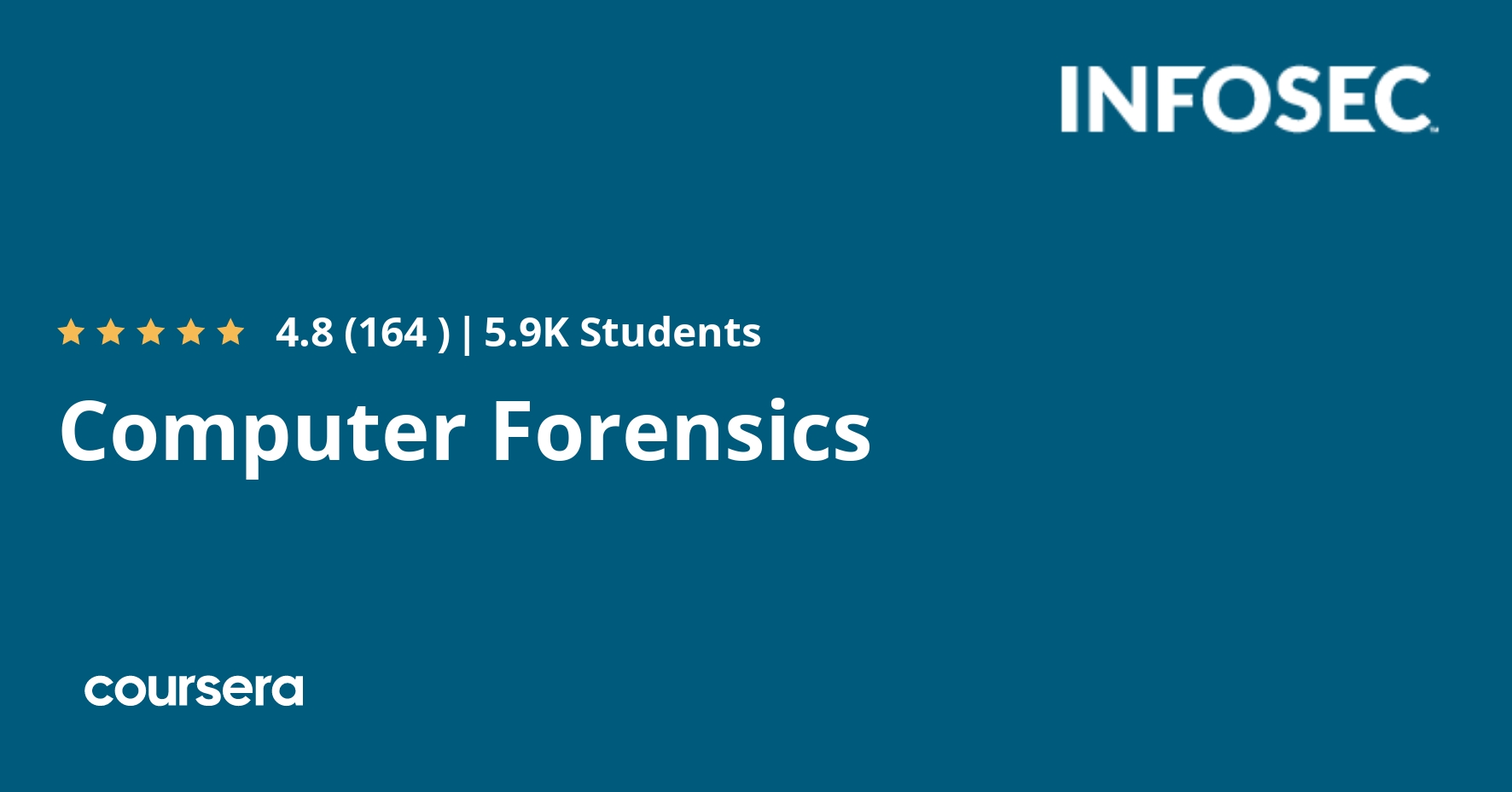Computer Forensics
Introduction
Embark on a journey to launch your career in computer forensics with “Computer Forensics” by Infosec. This specialization equips you with the essential skills to identify, analyze, and interpret digital evidence, crucial for investigating cybercrimes and securing digital environments. Enroll now to delve into the fascinating field of computer forensics and become a sought-after cybersecurity professional.
What You Will Learn in the Computer Forensics Specialization
“Computer Forensics” specializes in teaching you how to identify, analyze, and interpret digital evidence effectively. You will learn the principles and techniques of computer forensics, including data acquisition, forensic analysis, and report generation. Through hands-on exercises and real-world case studies, you will develop the proficiency to investigate cyber incidents and mitigate digital threats.
Most Frequently Asked Questions about the Computer Forensics Specialization
What is the primary focus of the Computer Forensics specialization?
The primary focus of the specialization is to train individuals in the field of computer forensics, enabling them to identify, analyze, and interpret digital evidence for investigative purposes. Participants learn the techniques and methodologies essential for conducting thorough digital investigations and maintaining the integrity of evidence.
Why should I consider learning Computer Forensics?
Learning computer forensics is essential for cybersecurity professionals, law enforcement officers, and digital investigators involved in combating cybercrimes and securing digital environments. This specialization equips you with the knowledge and skills to navigate complex digital investigations, ensuring the preservation and analysis of digital evidence in compliance with legal and regulatory requirements.
How long does it take to complete the Computer Forensics specialization?
The duration of the specialization varies based on individual learning pace and prior knowledge of computer forensics concepts. Participants typically complete the specialization within several weeks, dedicating time to understand forensic methodologies, practice investigative techniques, and apply acquired skills in simulated scenarios.
What are my next learning options after completing the Computer Forensics specialization?
After completing this specialization, consider exploring advanced topics in cybersecurity and digital investigations. We recommend Data Analysis and Interpretation. This course offers insights into analyzing complex datasets and extracting meaningful insights, valuable for cybersecurity analysts and forensic investigators.
Is it worth learning Computer Forensics?
Absolutely! Computer forensics is a critical skill in today’s digital age, essential for investigating cybercrimes, resolving security incidents, and protecting digital assets. This specialization equips you with the expertise to navigate the complexities of digital investigations, making it a valuable asset in your cybersecurity career.
What roles or activities demand knowledge of Computer Forensics?
Professionals in cybersecurity, law enforcement, digital forensics, and incident response benefit from expertise in computer forensics. Roles may include forensic analysts, digital investigators, cybersecurity consultants, incident responders, and legal professionals specializing in digital evidence.
Will I receive a certificate upon completing the Computer Forensics specialization?
Upon successful completion of the specialization, participants will receive a certificate of achievement from Infosec, validating their proficiency in computer forensics and digital evidence analysis.







There are no reviews yet.